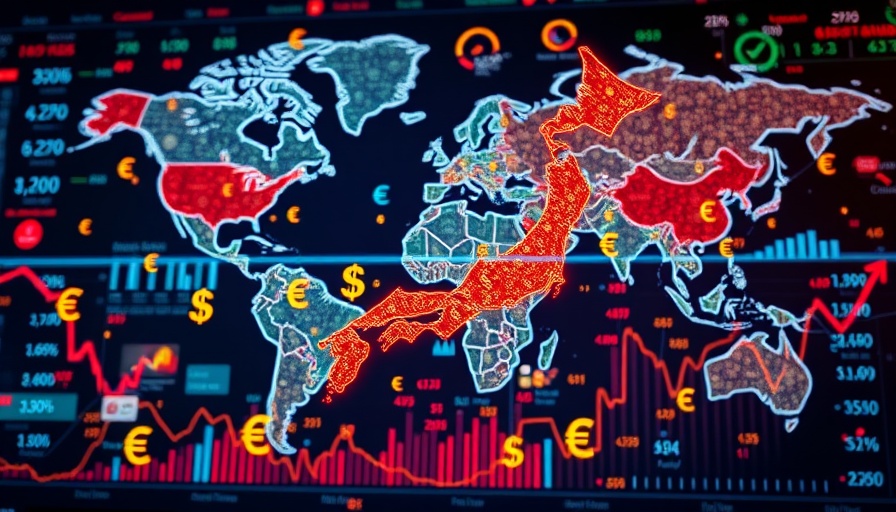
Is Japan’s Inflation Rate Signaling a Shift in Monetary Policy?
In May 2025, Japan's core consumer price index (CPI) inflation surged to 3.7% year-on-year, surpassing expectations and marking its highest level since January 2023. This unexpected rise in inflation comes as a pivotal moment for the Bank of Japan (BOJ), which has traditionally maintained a stance of low interest rates to stimulate economic growth. As the financial landscape evolves, analysts are increasingly convinced that the BOJ may soon consider an interest rate hike to combat rising prices and stabilize the economy.
Understanding Core CPI: What’s Driving Inflation?
The national core CPI, while excluding volatile fresh food prices, has climbed from 3.5% in April to 3.7% in May. Notably, if we further remove energy prices from the equation, core inflation registered at 3.3%, highlighting broader inflationary pressures across various sectors. This is critical not just for policymakers, but for consumers and investors alike, as rising costs can affect everything from daily living expenses to the profitability of businesses operating in Japan.
Market Reactions: What Investors Should Know
The rise in inflation usually sends ripples through financial markets, influencing investment strategies and asset allocations. Investors in stocks, mutual funds, and ETFs should tighten their focus on sectors that historically perform well during inflationary periods such as real estate investment trusts (REITs) and commodities. Moreover, diversifying portfolios to include growth stocks and value investments could provide a buffer against inflation. With markets constantly changing, understanding how interest rate hikes could impact investment options is paramount for making informed decisions.
Navigating Investment Strategies Amid Rising Rates
As the likelihood of an interest rate hike grows, how can individual investors adapt? Consideration for inflation protection investments—such as TIPS (Treasury Inflation-Protected Securities) and high-yield bonds—becomes increasingly relevant. Stocks in sectors like healthcare and technology, which can retain pricing power, may be more resilient in an inflationary environment. Investors also stand to benefit from implementing dollar-cost averaging strategies to mitigate risk while taking advantage of market fluctuations.
The Global Implications of Japan's Economic Decisions
Japan’s economic response to rising inflation could have broader implications beyond its shores. As the third-largest economy in the world, shifts in Japan’s monetary policy can affect global financial markets. Investment strategies in emerging markets and international funds need to be re-evaluated in light of potential currency fluctuations and changes in trade dynamics. Understanding these global connections is vital for savvy investing.
Conclusion: Preparing for the Future
With inflation rising and the possibility of interest rate hikes looming, investors need to be proactive in adjusting their financial strategies. Focusing on a diversified portfolio combined with a deep understanding of market trends can arm investors with the insights needed to navigate these uncertain times confidently. Financial independence is within reach for those willing to adapt and learn.
 Add Row
Add Row  Add
Add 



Write A Comment